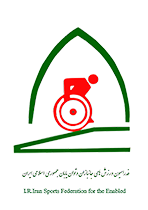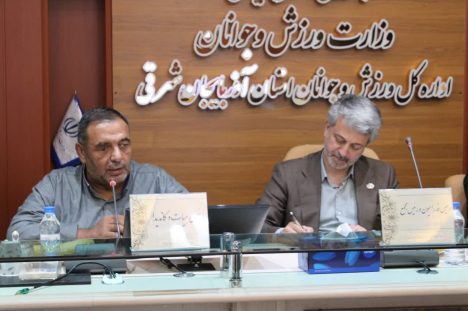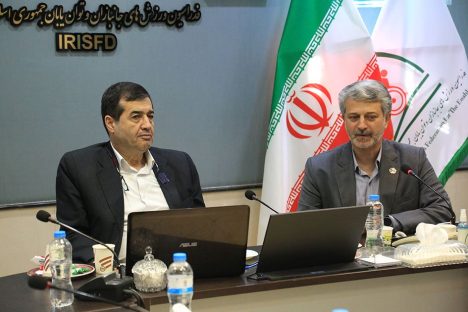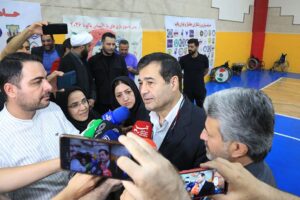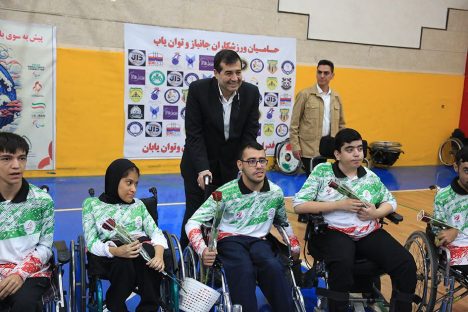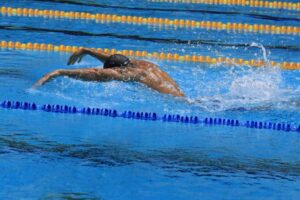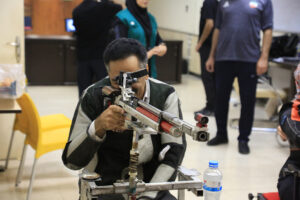Dr. Jalil Koohpayezadeh, President of the Veterans and Disabled Sports Federation, emphasized the importance of scientific development in this sports sector and the implementation of teamwork within provincial boards.
According to the Public Relations office of the Federation, the General Assemblies of the West Azerbaijan Provincial Board and the elections of the East Azerbaijan Provincial Board were held recently. Speaking at the West Azerbaijan assembly, Dr. Koohpayezadeh expressed satisfaction with the 7-place improvement in the ranking of the West Azerbaijan Board during the year 1403 (2024-2025). He stated: “Fortunately, this board has achieved good progress compared to the year 1402. This success, alongside the efforts of the board officials, was made possible by the support of Dr. Bairami, Director General of the Province’s Department of Sports and Youth. He is a capable manager and a strong supporter of veterans and disabled sports.”
Dr. Koohpayezadeh also spoke at both West and East Azerbaijan provincial assemblies, emphasizing that teamwork and organizational efforts must be expanded based on the functional needs of each board. To strengthen the executive board, he recommended engaging scientific experts, academics, economic activists, and media professionals so that their capacities can become opportunities for further progress in both the provincial board and veterans and disabled sports in the province.
He added: “Given that Iran has been introduced as the top country globally in developing women’s Paralympic sports, provincial board officials must prioritize the development of women’s sports so that the number of female athletes in the national delegation equals that of males. This requires concerted efforts by provincial boards to identify talented female athletes.”
Referring to the participation of intellectually disabled (ID) athletes in Paralympic sports and the holding of Asian and World Virtus competitions, Dr. Koohpayezadeh noted: “Provincial boards should, alongside Paralympic sports, identify and introduce talented athletes in the ID category to sports so we can have representatives in major events such as the Paralympic Games, which also include events in swimming, athletics, and table tennis for athletes with intellectual disabilities. This will help increase the medal counts for our country’s delegation.”
He stressed the importance of talent identification efforts, saying: “Special attention must be given to scouting talents, and besides the participation of athletes in festivals, we need to seriously pursue talent identification using technology at the provincial level to nurture good prospects for our senior national teams.”
Dr. Koohpayezadeh underlined the necessity of registering information for athletes, referees, and coaches in the online registration system, adding: “Recording this data in the system plays a crucial role in the performance evaluation of provinces. Athletes must be registered in the system before participating in national championships or leagues.”
The Federation President further said: “Holding educational courses and the attendance of coaches, referees, and classifiers in these courses is very important. The more trained individuals we have in the province, the greater the development of veterans and disabled sports will be, and athletes will be professionally prepared by knowledgeable coaches and referees for participation in competitions.”
He stated: “We must introduce disabled sports and their athletes’ achievements to society, as our national athletes, with their colorful medals and successful podium finishes, can inspire all members of the community. In this regard, provincial boards need to strengthen their cultural activities and public relations efforts to ensure the valuable actions of the boards are optimally communicated.”
Dr. Koohpayezadeh concluded by emphasizing: “Inter-sectoral cooperation and social participation must be expanded through the implementation of the Supreme Council of the Cultural Revolution’s resolution on supporting veterans and disabled sports. Utilizing the capacity of executive bodies, which have been obligated by the resolution to support this sports sector, we can contribute to the growth and advancement of sports for people with disabilities in the provinces.”
He also encouraged provincial boards to access sustainable financial resources through philanthropists, social responsibility initiatives, and sponsorships from private and non-governmental public sectors to avoid budget problems in conducting board activities and hosting events.
Notably, during his trip to West Azerbaijan Province, the Federation President visited the Isar residential complex of the Martyrs and Veterans Affairs Foundation and called for organizing national championships, international events, and training camps in collaboration with the Provincial Department of Sports and Youth.
In East Azerbaijan Province, he visited the Paralympic complex and held meetings and discussions with officials of Tabriz Physical Education Faculty. He emphasized the importance of strengthening interaction and cooperation between the East Azerbaijan provincial board and Tabriz Physical Education Faculty.

